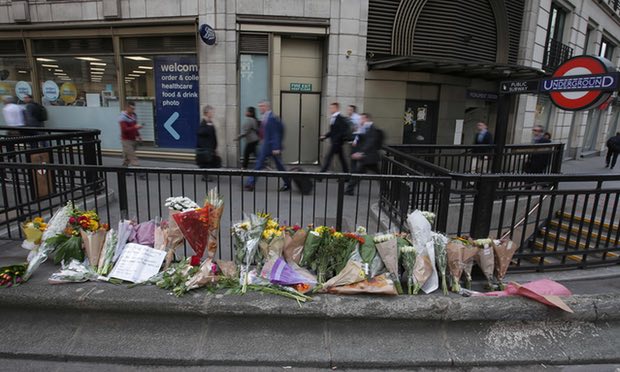Nothing can justify the killing of civilians, whether in Manchester and London, Kabul or Baghdad. It is important for us to be consistent in our condemnation of these criminal acts, and to maintain our support for all the victims, whoever they are, wherever they live. While the strategy of groups like Islamic State and individuals who commit these horrific attacks is to divide our societies, and to push us towards the perception that it is impossible to live together, it is critical for our leaders to resist sensationalist and divisive rhetoric.
Rather than targeting the so-called “Islamist-inspired terrorists”, we should be bringing people together and I mean all people, those with or without faith, in a united front against all senseless acts of violence against civilians, here or abroad.
To portray such criminal acts as part of an ideological battle between extremist, anti-western Muslims and western people and values risks further alienating Muslim citizens and ignores the fact that Muslims themselves also fall victim to these attacks. This distinction also inadvertently presents the problem as geographic, and restricts our ability to empathise with Muslim-majority societies, where most attacks actually take place.
We have seen former US president George W Bush and former French prime minister Manuel Valls, along with media pundits, repeat the tired line that “to explain is to justify”. But if we want a truly comprehensive solution to the problem, it is important to understand the context in which this violence takes place.
We cannot deny the fact that, in the west, Islam has been unfairly demonised and that the rhetoric from politicians and the media continues to exacerbate this situation. We must not forget that Islam is a western religion and when we speak about Britain or the west, we are also speaking about Muslim citizens who have played a positive role in their societies and will continue to play a role in confronting extremism.
The answer to these attacks cannot just be a heightened security policy based on spreading suspicion and fear, starting with the mass surveillance of Muslims. The problem is not going to be solved by restricting the rights of ordinary citizens. Not only does this play into the hands of those committing these attacks, but it also strengthens Islamophobic segments of our own society that have contributed to the politics of division. Muslim citizens have faced an increase in hate crimes and violence directed at them at an alarming rate with little to no condemnation by politicians and minimal media coverage.
British government programmes, chiefly Prevent, continue to play a counterproductive role by stigmatising an entire portion of the society and undermining the very values of freedom of expression that our politicians flaunt. These policies treat any Muslim’s political views that happens to be counter to the government narrative as potentially “radical”. Citizens, Muslims or not, should be able to criticise government policies without being perceived as suspicious. We must also be allowed to address the root causes of terrorism, for example by pointing out flaws in our foreign policy.
Why are these individuals targeting Britain, France, and the US? Those who commit these crimes often claim that they are acting in response to the killings in Syria, Iraq and Palestine. Only a holistic approach to the politics of the Middle East and a crucial examination of our role there will allow us to solve the problem. Our contribution to violence in Palestine, in Yemen, in Iraq and in Syria, as well as our support for autocratic regimes that restrict public space and limit Muslim civil society’s freedom should be addressed.
On the second front, there will also be no end to these crimes if we do not consistently promote justice abroad, which is a condition for peace. This includes ensuring the safety and security of citizens in states that western countries have helped destabilise.
But it also means truly standing up for economic and social justice abroad, as opposed to pillaging other countries for their resources and securing our own interests. Our current policies put those countries’ citizens in a position where they are forced to choose between an undignified life there and leaving for better opportunities abroad. Our governments open our borders for their wealth, but close it to migrants and refugees.
There are critical conflicts in these regions that have to be solved, and we cannot skirt our role in them. In the centenary of the Balfour declaration, we cannot deny the fact that in Palestine, people are still being oppressed. Nearly 15 years since the illegal invasion and occupation of Iraq, we cannot forget the destruction it wreaked on the wider region, including Syria.
Theresa May responded to the criminal attacks at London Bridge by saying: “Enough is enough.” Yes, enough is enough with the policies of stigmatisation and selective condemnation. It is time for something new, for less hypocrisy and more humanity and courage.





It should register to the mind of the believer that stands alone and is friendless, that Allah (S.B.T.) is there. When a staunch believing Muslim is made to be sick with “treatment”, twisted in the mind, soul and being by “medicine”, existing only as a puppet and medium, there is no personality to interactive with, and no active Muslim existence. Such is the state of sacrafice such as “myself” and there is only hope and time (if allowed to stand on) until Allah (S.B.T.) arrives again giving my heart, my spirit, my personality and my soul of being back, even for just a day.
i support you 100%